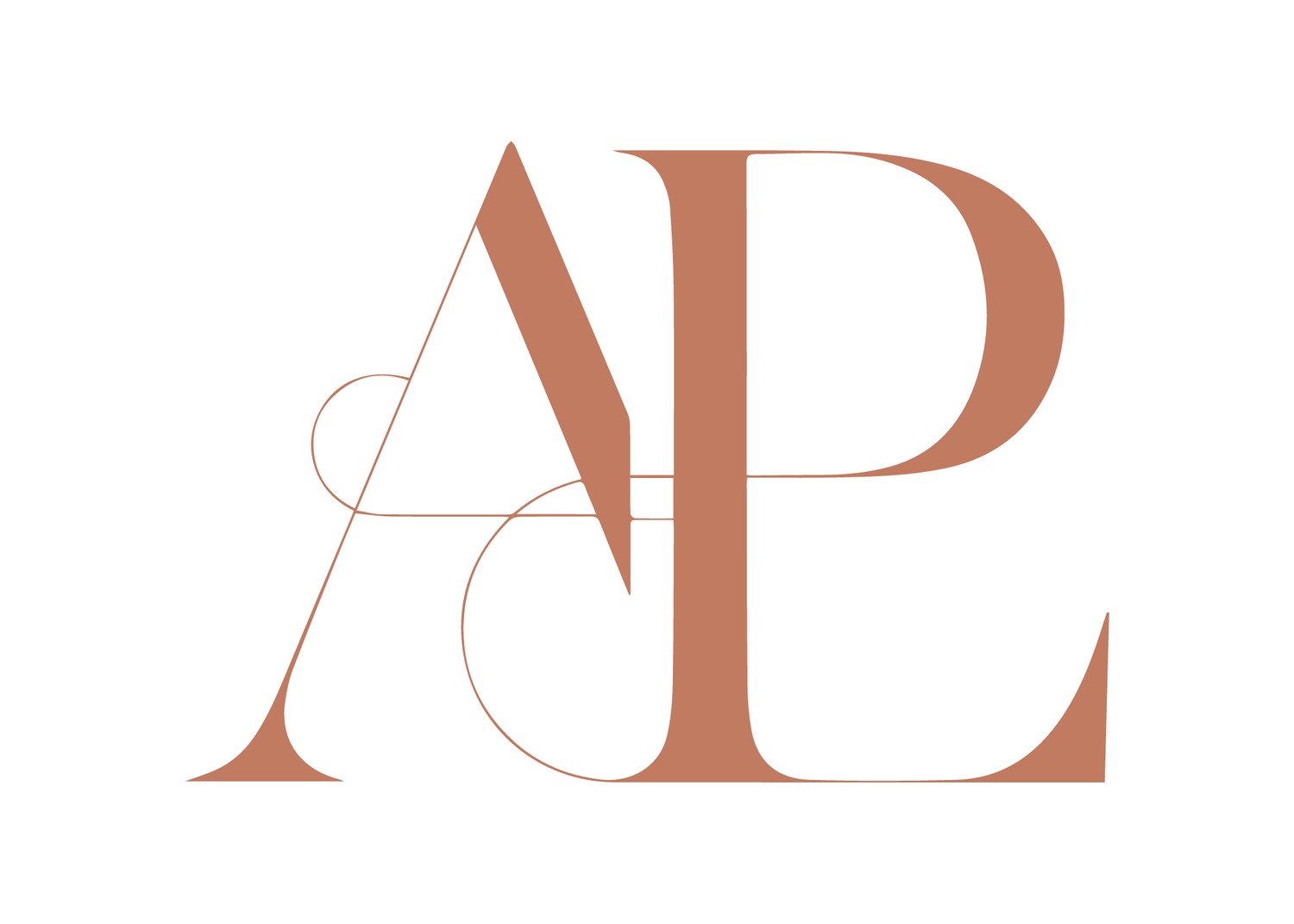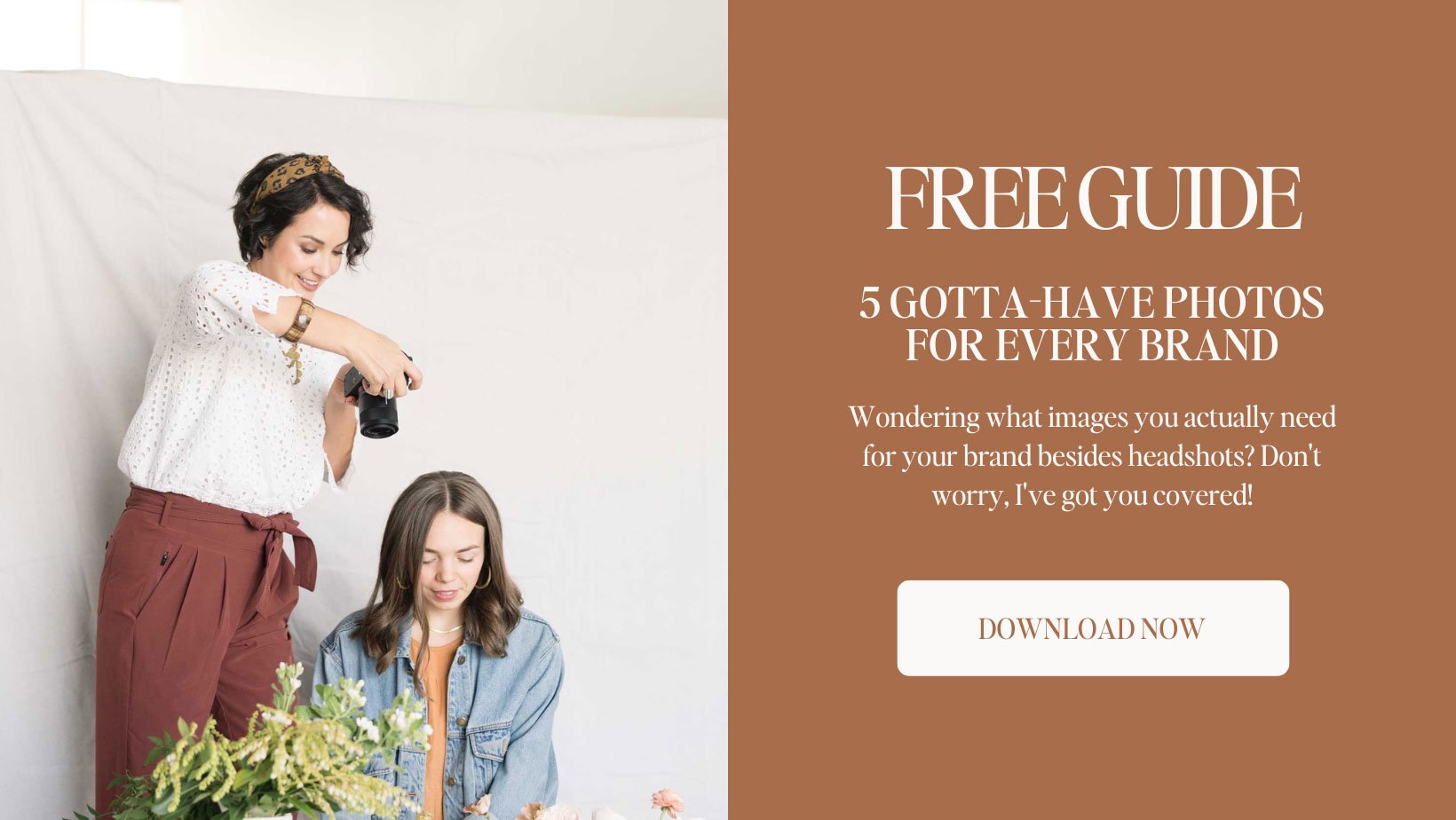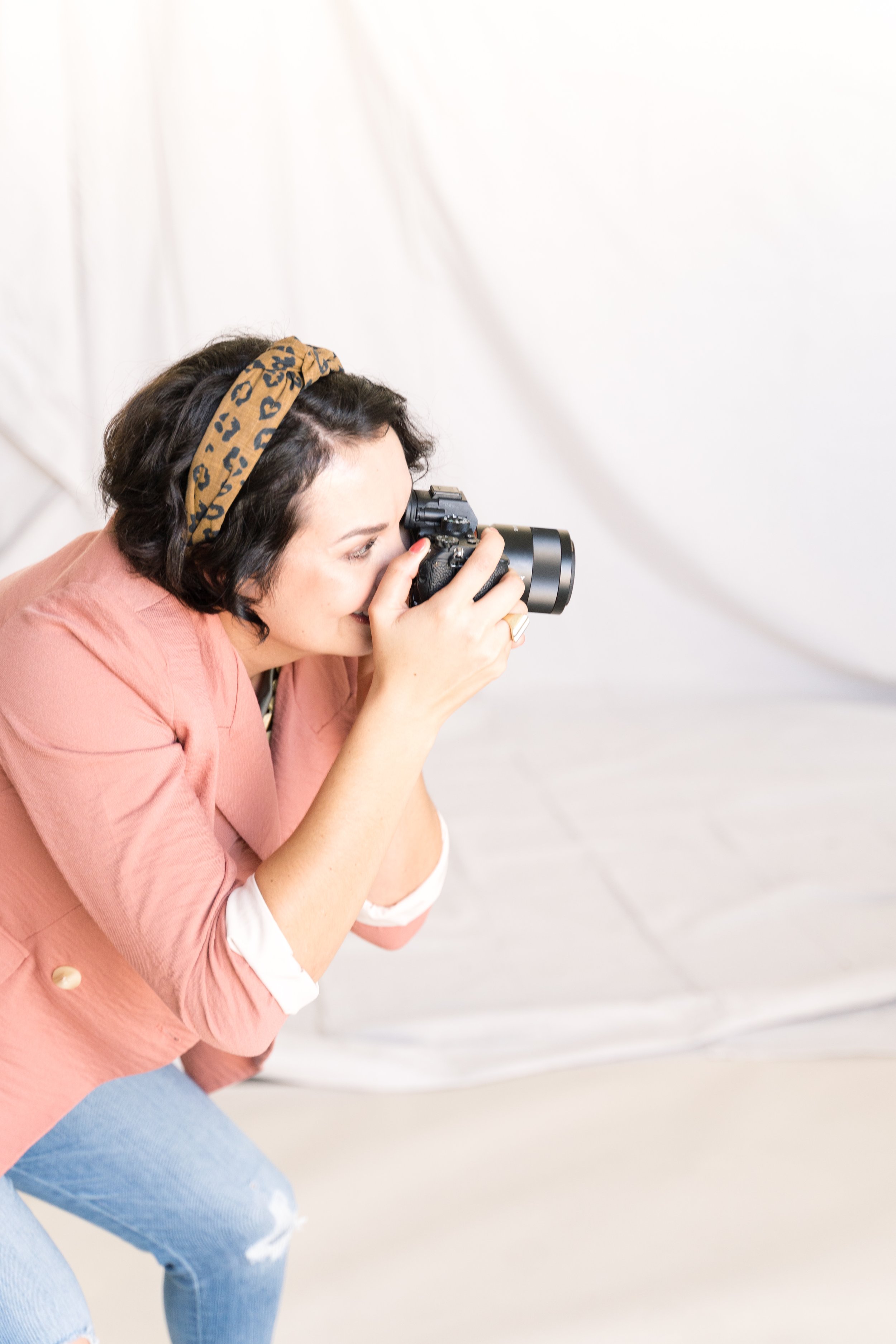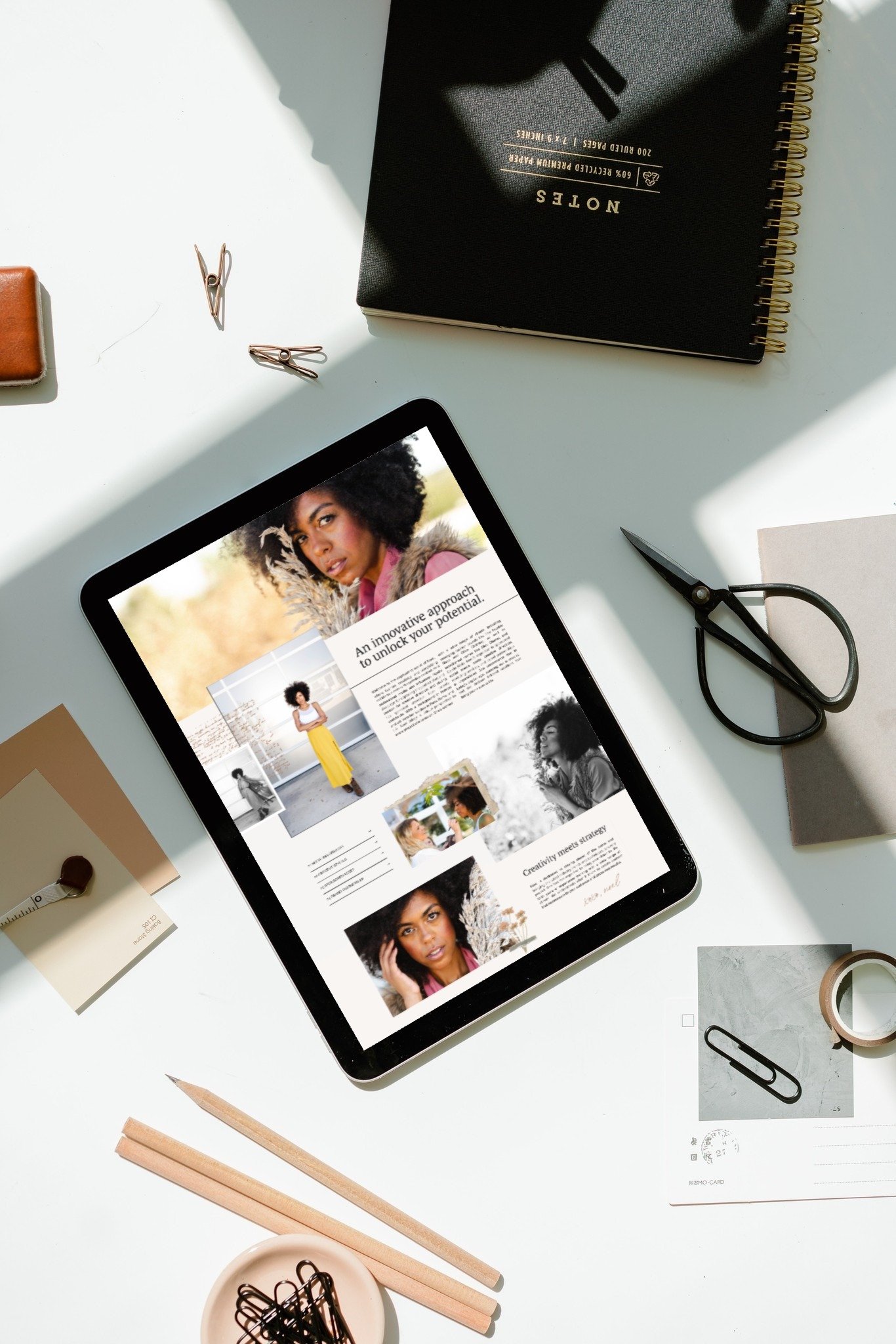How To Define Your Business Ethics (PLUS My Photo Editing Ethics)
Recently, a client expressed to me her disappointment when I didn't do more retouching to her photo than I had. But the things she wanted to change gave me pause. To change these things would feel…dishonest.
Luckily, I already knew how I stand on the issue. But there was a time when I didn’t. Now by having a clearly defined sense of my business ethics, it was easy for me to respond accordingly. I knew exactly where the line was drawn.
If you’re a business owner, it’s a good idea to define your business ethics ahead of time… before you face pushback. Here’s how I decided how much photo editing is too much (for me), and what steps to take to define your own sense of ethics in your business.
Back To Basics: Why You Need To Define Your Business Ethics
Your business ethics are your definition of right and wrong. We all have a personal set of ethics and those same ethics may reflect in your business, or they may be slightly different. Defining your ethics means ‘drawing a line’ between what you will and won’t do.
Important Benefits Of Defining Your Ethics
Boundaries
Have trouble saying ‘no’ to, well, anything? Feeling overstressed by all the requests? Define your sense of business ethics to help you set betters boundaries with clients and therefore provide a better experience.
Decisions
It’s easier to make decisions once you know where you stand on the issues. So if someone comes along, and asks me to photoshop a new nose on them, I don’t have to think about it. The answer is an automatic no. (Keep reading to find out WHY it’s a ‘no’.)
Impact
Change starts with you. Your business ethics help you make intentional choices so you can do your part to create the change you want to see in the world.
Photo Editing: The Real Reason Clients Push Back and Why It Matters
We live in a hyper-critical world that is hard on women in many, many respects.
Every day we are bombarded with anti-aging messaging. We are encouraged to alter our appearance. To postpone any signs of aging as long as possible, to hide behind filters…or to do things that are even physically harmful to our bodies.
My clients that expect photoshopped images only do so because we have become accustomed to Zoom filters, social media filters, automatic face softening of various apps, and low-resolution smartphone selfies taken only from strategic hand angles.
Print media doesn't help this trend either. Almost all of the photos you view in fashion magazines have been altered, a whopping 98% of images have been photoshopped.
Rosalind Gill is a Professor of Social and Cultural Analysis at the University of London as well as the Deputy Director of the Gender and Sexualities Research Centre. She shared her recent findings from a 2020 research study of 175 18-30-year-old young women and nonbinary people in the UK. (This study is fascinating and enlightening and can be read here.)
The results?
90% of young women reported using filters or editing their photos to appear as if they had whiter teeth, weighed less, had a different nose, or other physical changes."
85% of young women also edit their photos using tools outside the platforms’ own tools and/
or using apps such as FaceTune. Besides cropping or reshaping a selfie or changing
contrast or colour saturation, the main things women seek to edit are: skin tone, face
contours, weight (to look slimmer), to brighten or bronze skin, to reshape nose or
jaw, to make lips look fuller, to make eyes look bigger, and to whiten teeth.
Gill R. Changing the Perfect Picture: Smartphones, Social Media, and Appearance Pressures. University of London, Gender and Sexualities Research Centre. 2021.
We all use these things and, as a result, we have collectively developed an altered version of reality - one that (we think) better fits in with the nonstop anti-aging messaging we are subjected to.
So if you feel unhappy with your authentic appearance, you’re not alone.
"We have taken the human beauty to an extreme that beauty itself cannot compete with."
Fabio Apelbaum, Director of Graphic Arts at a television station, as quoted from the article: https://www.artinstitutes.edu/about/blog/picture-imperfect-digital-image-manipulation-ethics
Similarly, I, too, have fallen victim to these tactics and feelings. I still do. I struggle with aging. (I've tried botox!) I constantly think about my skincare regimen. I worry about lines on my face, cellulite on my thighs, rolls in my belly. There is an unrealistic/unfair standard of beauty that we never attain no matter how hard we try.
But the solution doesn’t come from giving in to societal pressure. It comes when we actively try to RECOVER from and REJECT society’s messaging. When we say, “I am good enough just as I am.”
Committing myself to editing women less - and portraying their authentic beauty more - is one way I can help.
Example Business Ethics: What I Will and Won’t Do In Photoshop
When I first started dabbling in photography, I learned the powers of photoshop and how it could be used to change people’s appearance.
Sometimes people would ask me to use it, and I did. But it left me feeling icky. Guilty. Ashamed.
I could never look at that photo without thinking it was a lie - a lie that I had taken part in telling. It was weird. Photoshop is commonly used by many other photographers. It’s a good fit for their style and their clients. It works for them. But for me, it didn’t.
That’s the thing about ethics. There’s no right one way to define them. They vary from person to person, from business to business. You have to decide what lines matter most to you.
As a photographer, I have done the hard work of asking myself, “How much editing is TOO much?” With time, I have leaned into my core values and defined my ethics so that they best support my mission. Still, I don't do things perfectly by any means, but I am trying to help move the needle in the ways I can while still meeting client requests.
My passion is to help women document and celebrate their stories. I want to help them build the confidence they need to show up authentically in life and business.
Moreover, my goal is to help them build brands that connect from the heart - because their images come from a place of honesty and vulnerability.
When I reflect on my mission, the rest becomes easy. I want to make women feel their best and I want to flatter them, complement them, and pose them well... but I can't change their faces. And I don't want to.
What I DO:
soften skin (my camera is much too sharp for most people's preference)
whiten teeth
remove temporary blemishes
remove out-of-place distractions
In summary, I will do a soft retouching, but I will always do it in a way that still leaves you looking like YOU.
Don't want to be retouched as much or at all?
Go you! You're always welcome to let me know this! I'm happy to soften your skin a little more or a little less at your request.
What I WON’T DO:
change your face
reverse your age
hide your real beauty
Ultimately, I will never change your beauty in a way that is dishonest to you and others. You should be identifiable to the people you meet in your work as a business owner because the best connections start with honesty and authenticity.
With that, are you ready to show up as your most beautiful, authentic self?
If you’re in the Austin, Texas area, be sure to check out the heartfelt brand experience.










































